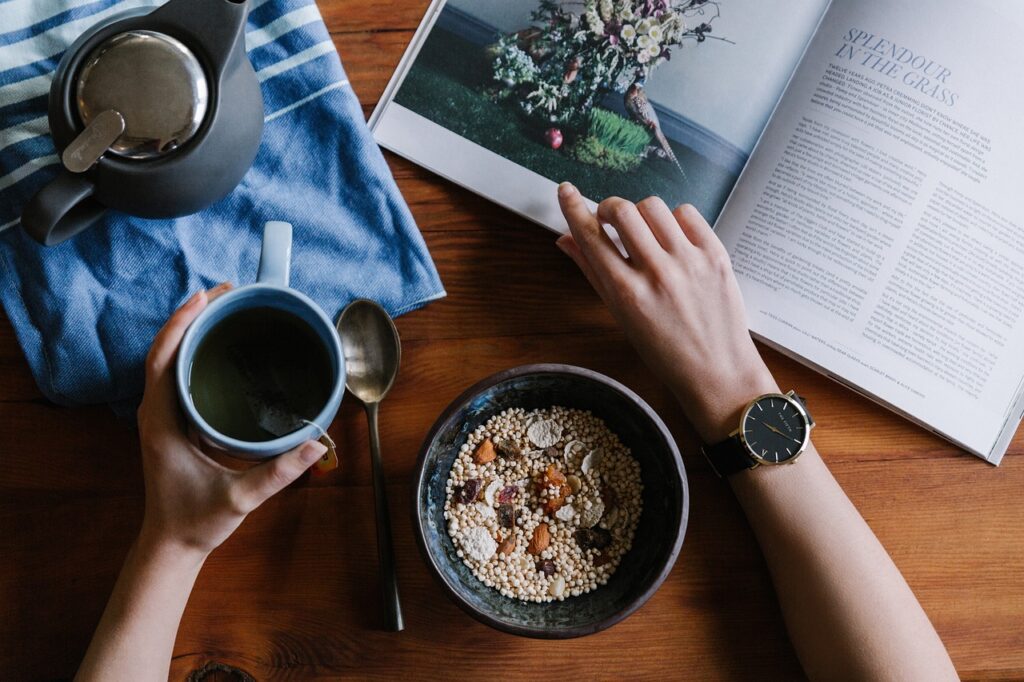 Have an ongoing conversation with your body.
Have an ongoing conversation with your body. It may often feel like your body is speaking a foreign language, it sure did for me when I first started tuning in! However, the more you listen and reflect on how your lifestyle choices leave you feeling, the more you build up your toolbox to help optimize the way you feel.
For example, when you’re feeling tired, it’s unlikely that your body is saying, “I need caffeine,” but it may be saying, “I need water,” “I would benefit from some fresh air and/or movement, “That was a big meal, my blood sugar is a bit wonky,” “I need to prioritize sleep tonight,” etc.
Light triggers cortisol, darkness triggers melatonin. Makes sense…yet, most of us are on electronics up until bedtime (and often in bed!), with the light from our electronics telling our body it’s daytime, therefore negatively impacting our quality of sleep.
Sleep is when the body heals and repairs, so it should be a priority. Winding down is also important, which is where blue light-blocking (BLB) glasses enter the picture!
Putting blue light-blocking glasses on when the sun sets (or at least one hour before bed) helps support circadian rhythms. It decreases the negative impact electronics have on cortisol and melatonin levels.
Expert Tip: rather than reaching for a melatonin supplement, aim to support your body’s production of melatonin.
Blood sugar levels impact inflammation, energy, cognition, and more, and because inflammation is the root of many disease states, balancing blood sugar is key for disease management and prevention.
Whenever you consume carbohydrates, aim to balance them with protein, quality fat, and nonstarchy vegetables to promote blood sugar values that resemble speed bumps rather than mountains and valleys.
For example: rather than consuming a piece of fruit (carb) on its own, pair that piece of fruit with a handful of nuts or seeds (quality fat)
Slow down when you eat. Digestion begins in the mouth, and chewing is key. If we bypass step one of digestion, the results aren’t as favorable. Remain mindful of slowing your eating speed and chewing thoroughly to ensure you support digestion rather than stressing out your digestive system.
Expert tip: experiment with using a smaller utensil so each bite is naturally smaller. Keeping a visual (i.e. Sticky note) or tactical (i.e. Trinket of some sort) reminder where you eat can also help.
Many of us live in a state of fight or flight for much of the day. Fight or flight is used to describe the sympathetic nervous system, whereas rest and digest is used to describe the parasympathetic nervous system. Simply taking an intentional deep breath, inhaling through the nose, and having a prolonged exhalation through the mouth are simple and readily available tools to activate the parasympathetic nervous system.
Expert tip: rather than focusing on ways to remove stressors (which is often unrealistic), arm yourself with tools to support stress resilience. Taking a deep breath at various times throughout the day is a powerful way to calm your nervous system.